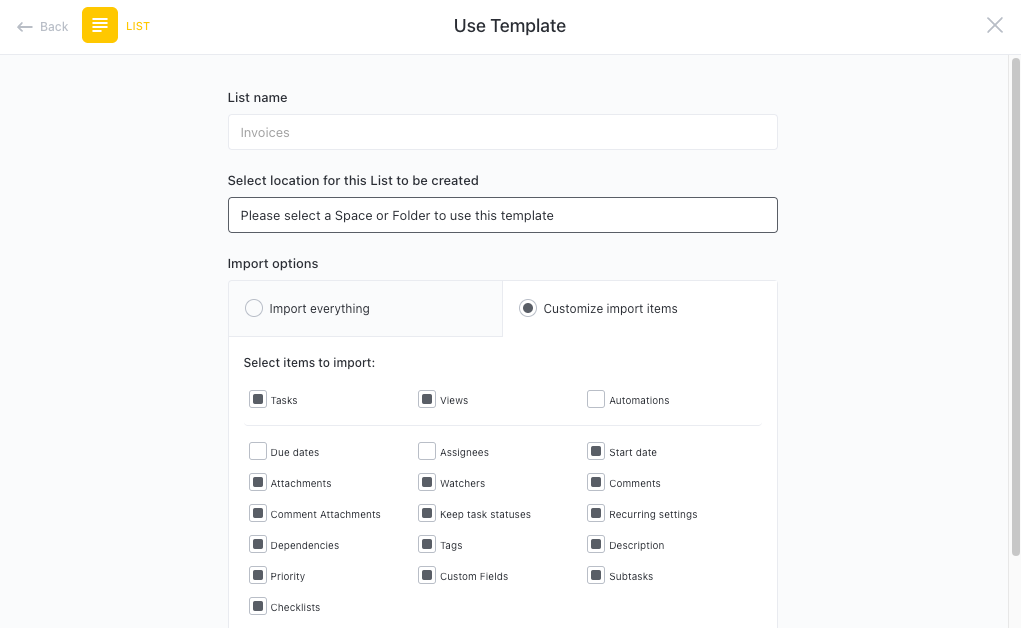Meetings should be productive and collaborative. But without a plan, that’s not always the case.
ClickUp's Agenda Template is designed to help you make the most of your meetings by giving you everything you need to:
- Outline topics, objectives, and goals
- Break down tasks and action items
- Assign responsibilities between teams members
This meeting template helps keep everyone on the same page and accountable for their work, so that every meeting is successful and productive. Best of all, it can be used for any type of meeting or event!
Benefits of an Agenda Template
An agenda template can be a useful tool for any meeting. Here are some of the benefits of using one:
- Ensuring that all topics are addressed in the meeting
- Helping participants prepare for the meeting by providing an overview of the topics to be discussed
- Establishing structure and order to the meeting
- Encouraging active participation by all participants
Main Elements of an Agenda Template
ClickUp's Agenda Template is designed to help you plan and organize meetings. This Doc template includes:
- Custom Statuses: Create tasks with various custom statuses to keep track of the different agenda items
- Custom Fields: Categorize and add attributes to manage your agenda tasks
- Custom Views: Start with this Doc template and build out your ClickUp workflow which includes List, Gantt, Workload, Calendar, and more
- Project Management: Improve meeting planning with comment reactions, nested subtasks, multiple assignees, and priorities
How to Use an Agenda Template
Creating an organized agenda is an essential part of planning for any meeting or event. Here are 5 steps you can use to create an effective agenda using ClickUp:
1. Set a goal
Before creating an agenda, it’s important to make sure everyone involved understands the goal of the meeting. This will help ensure that the agenda is focused and actionable.
Use a Doc in ClickUp to collaboratively brainstorm the main goal of the meeting and create a shared understanding of what needs to be accomplished.
2. Plan the agenda
Now that you have a goal in mind, it’s time to start planning the agenda. This includes deciding on a time frame, topics to be discussed, and any activities or assignments that will be included.
Create a Gantt chart in ClickUp to map out the timeline for the meeting and any tasks or activities that need to be completed.
3. Assign tasks
Once the agenda is drafted, assign tasks to the appropriate team members. This will help ensure that everyone involved is clear on their responsibilities and the timeline for completion.
Create tasks in ClickUp and assign them to the relevant team members.
4. Communicate the agenda
Once the agenda is finalized, make sure to communicate it to everyone involved. This can be done through email, Slack, or any other communication platform.
Use Email in ClickUp to quickly send the agenda to everyone who needs to know.
5. Follow up
After the meeting, it’s important to review the agenda and make sure that all tasks were completed and action items were addressed. This helps ensure accountability and productivity.
Use Milestones in ClickUp to set deadlines and track progress for each task.
Get Started with ClickUp's Agenda Template
Meeting organizers can use this Agenda Template to help everyone stay on the same page when it comes to planning events and organizing meetings.
First, hit “Add Template” to sign up for ClickUp and add the template to your Workspace. Make sure you designate which Space or location in your Workspace you’d like this template applied.
Next, invite relevant members or guests to your Workspace to start collaborating.

Now you can take advantage of the full potential of this template to create an organized agenda:
- Create tasks for each agenda item, assign to appropriate team member, and designate a timeline
- Collaborate with stakeholders to brainstorm ideas and create content for each agenda item
- Organize tasks into categories to keep track of progress
- Set up notifications to stay up-to-date on progress
- Hold regular meetings to discuss progress and any issues
- Monitor and analyze tasks to ensure maximum productivity
Get Started with Our Agenda Template Today








